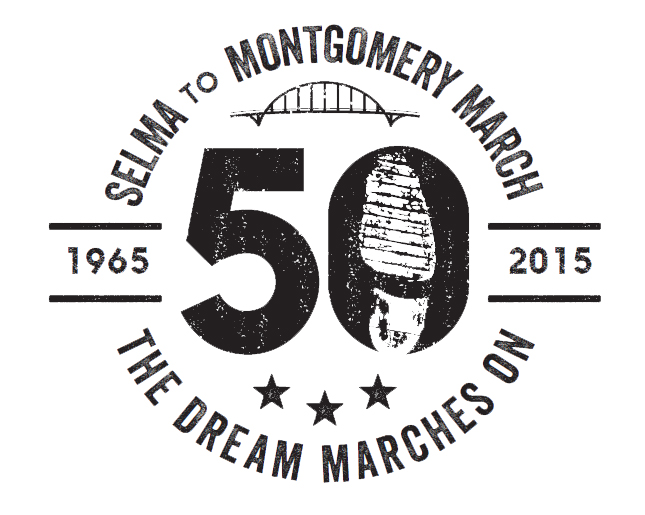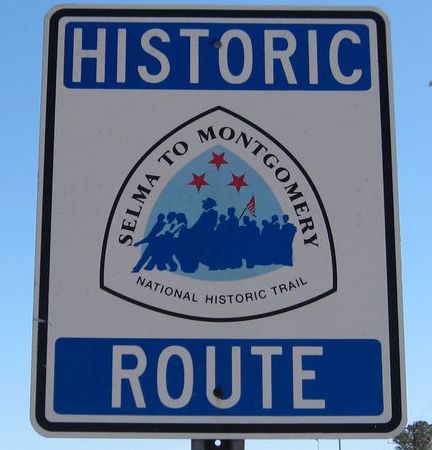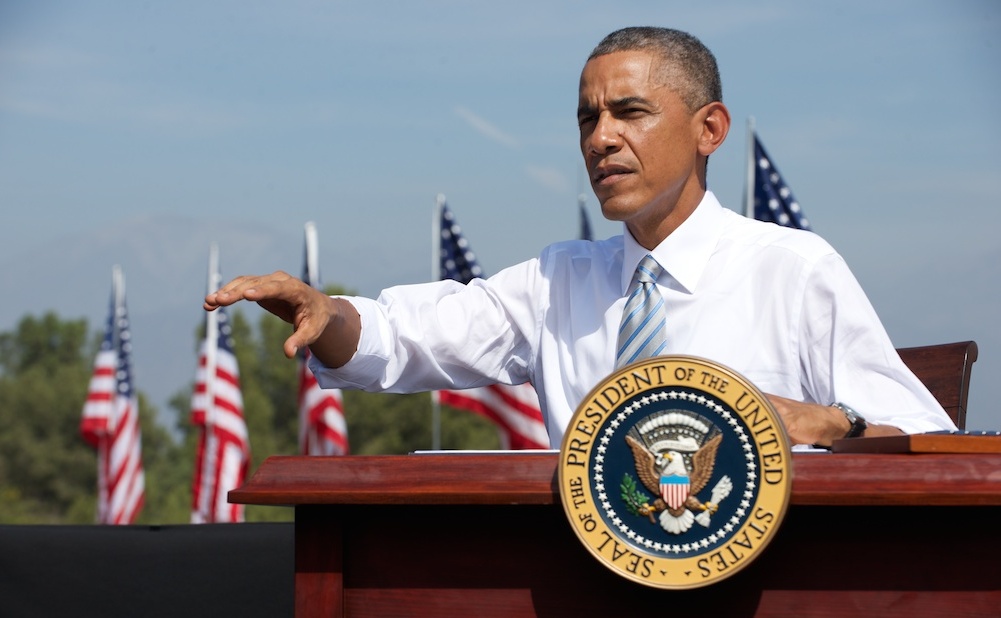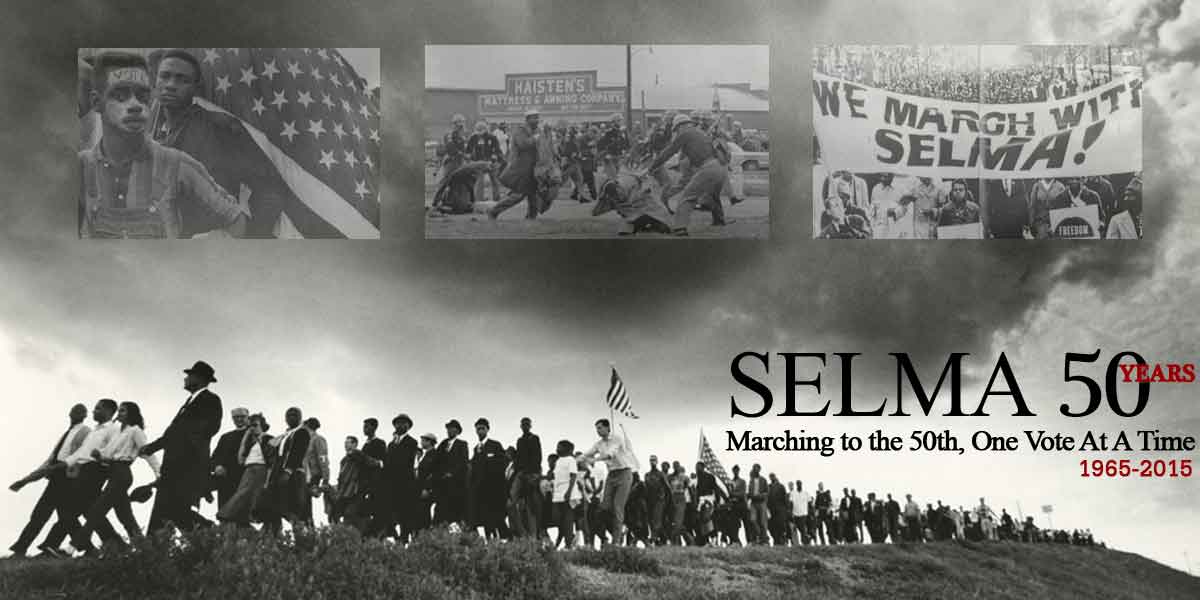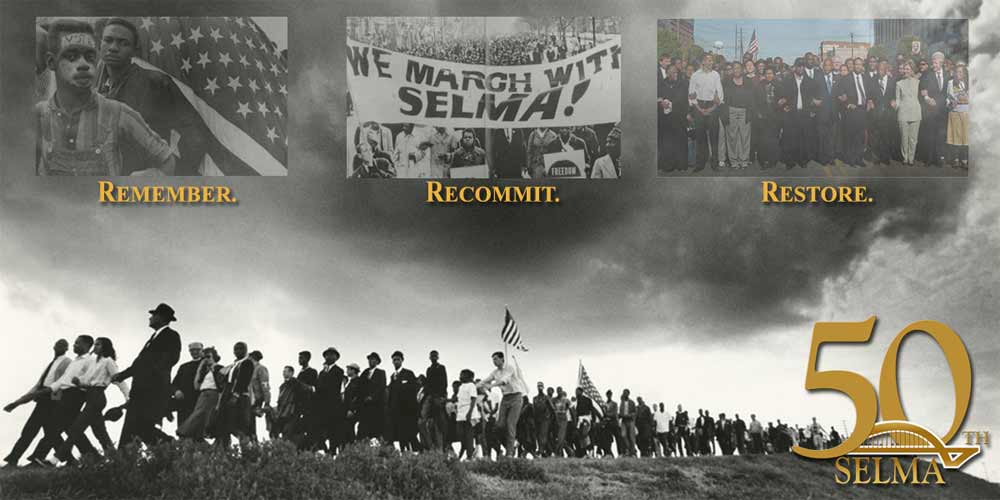President Barack Obama is calling for $50 million to restore national parks sites associated with the civil rights movement to commemorate the 50th Anniversary of the Voting Rights Act.
The president’s budget — which has to be approved by Congress — calls for new investments at a number of historic sites, including those along the Selma to Montgomery National Historic Trail. The president is likely to highlight the request when he visits Selma next month to mark the 50th anniversary of activist marches from Selma to the Alabama Capitol in Montgomery protesting efforts to prevent Black citizens from registering to vote.
The protests gave political momentum to the Voting Rights Act of 1965, which banned state and local governments from implementing voting laws that discriminated against minorities, including literacy tests and poll taxes in violation of the U.S. Constitution’s Fifteenth Amendment. The Act also prohibited certain jurisdictions with a history of Black voter disenfranchisement from changing their voting laws without pre-approval from the federal government.
 Attention has been refocused on the historic marches since the release of the movie “Selma,” which chronicles Martin Luther King Jr.’s efforts to organize the protests. The president hosted a screening of the movie last month at the White House. Actors including Oprah Winfrey and David Oyelowo were in attendance, as was Rep. John Lewis (D-Ga.), who was severely beaten by Alabama state troopers and militiamen during the first voting rights march across the Edmund Pettus Bridge in Selma. That event on March 7, 1965, was dubbed “Bloody Sunday.”
Attention has been refocused on the historic marches since the release of the movie “Selma,” which chronicles Martin Luther King Jr.’s efforts to organize the protests. The president hosted a screening of the movie last month at the White House. Actors including Oprah Winfrey and David Oyelowo were in attendance, as was Rep. John Lewis (D-Ga.), who was severely beaten by Alabama state troopers and militiamen during the first voting rights march across the Edmund Pettus Bridge in Selma. That event on March 7, 1965, was dubbed “Bloody Sunday.”
In addition to the Selma site, Obama’s budget also calls for federal dollars to highlight and restore two historic sites related to the integration of public schools.
The president would give more federal dollars to the Brown v. Board of Education National Historic Site, which preserves one of the segregated Topeka elementary schools deemed unconstitutional in the famous 1954 court decision. He’d also designate money for Little Rock Central High School, where President Dwight Eisenhower deployed the National Guard to protect black students integrating the school in 1957.
State, local and tribal governments can also apply for historic preservation funds to help them document and preserve stories and sites associated with the civil rights movement. Sites in Alabama could also include the Sixteenth Street Baptist Church, where a bombing killed four little girl and severely injured a fifth girl in 1963 following the famous Birmingham Campaign around Kelly Ingram Park and a federal judge’s ruling ordering the integration of schools there.
The money for these site restoration efforts are part of a $4 trillion budget package President Obama sent to Congress on Feb. 2. The plans in his budget still have to be approved by the Republican-controlled House and Senate.
Source: The Hill


